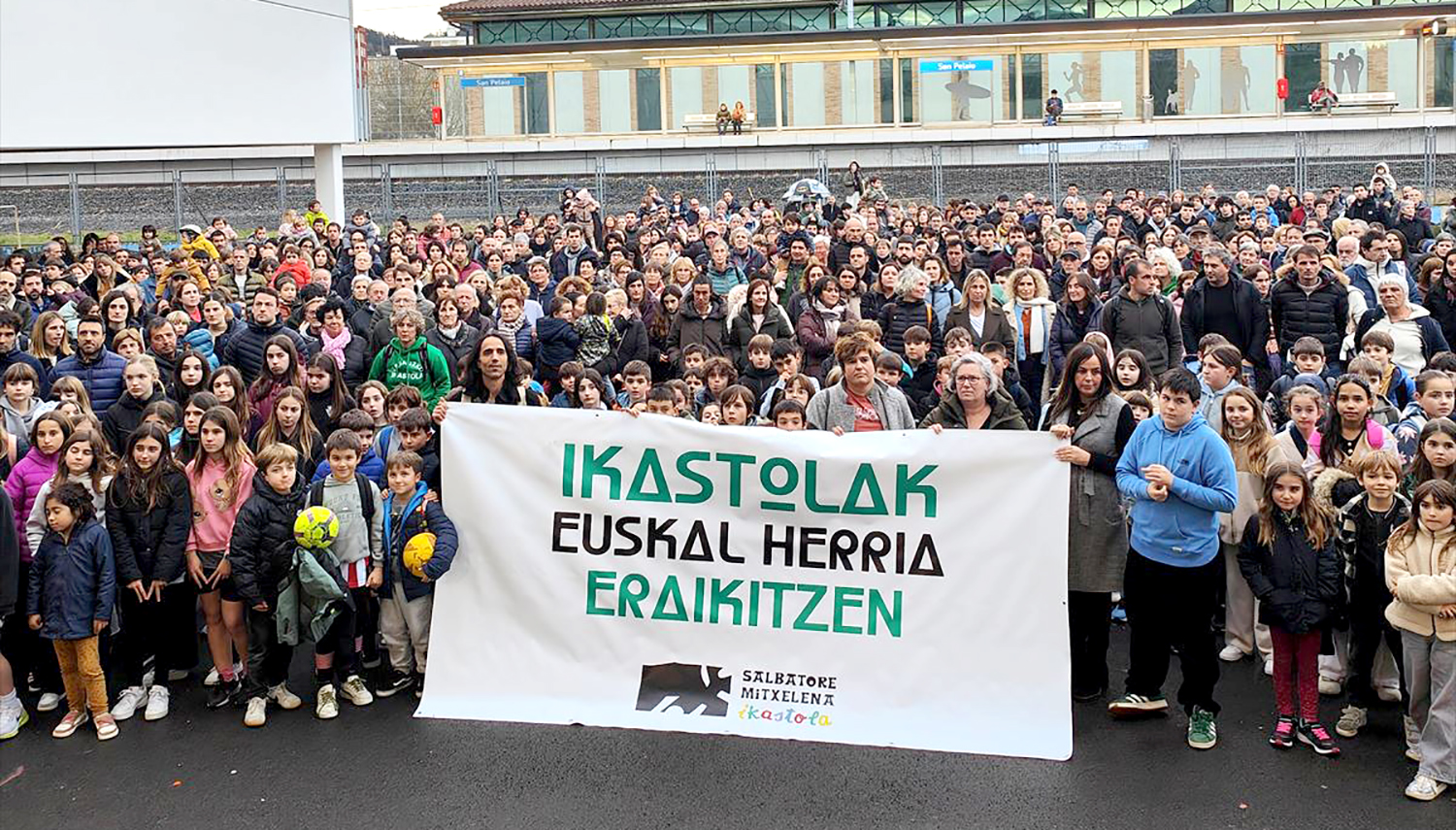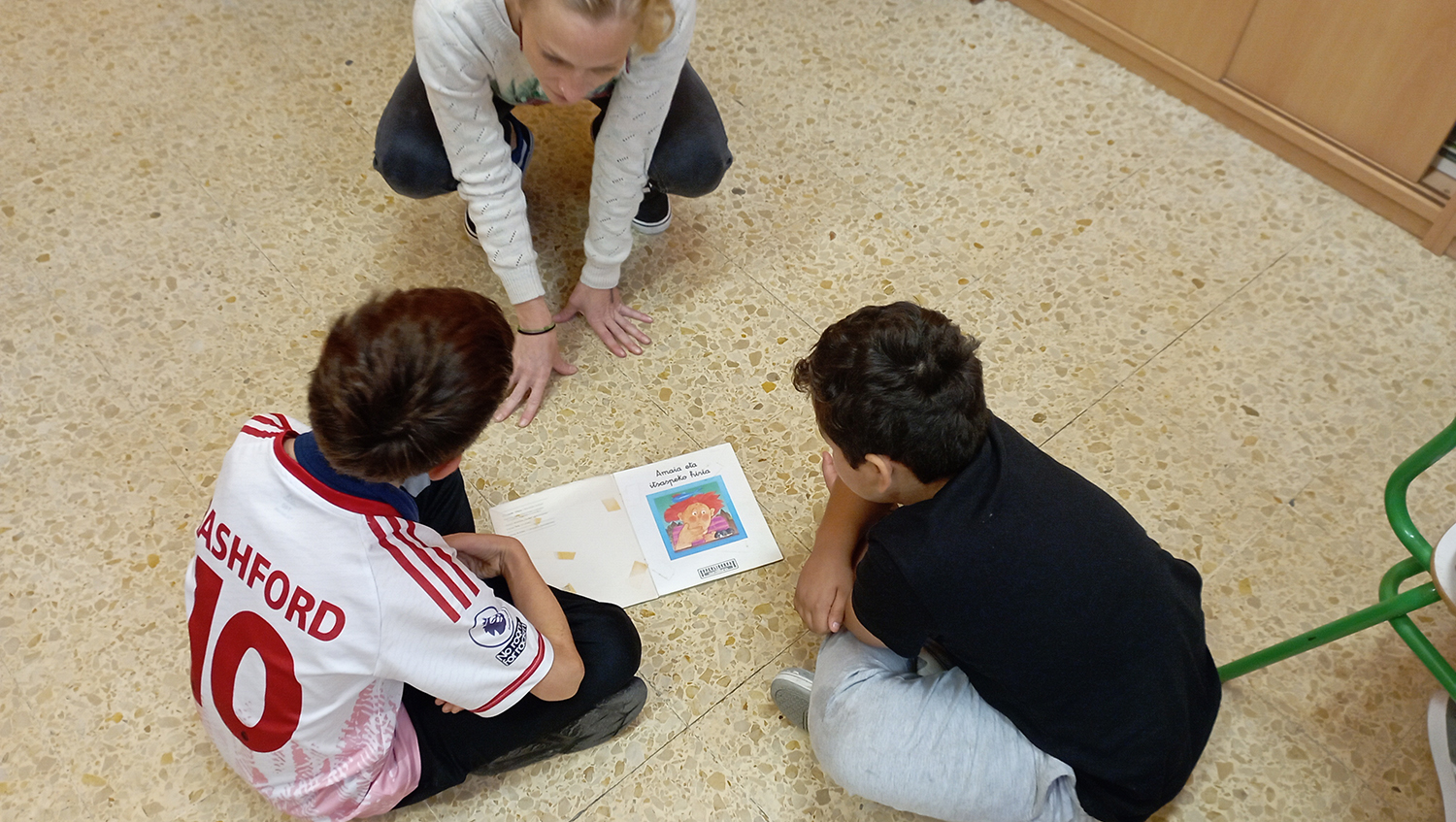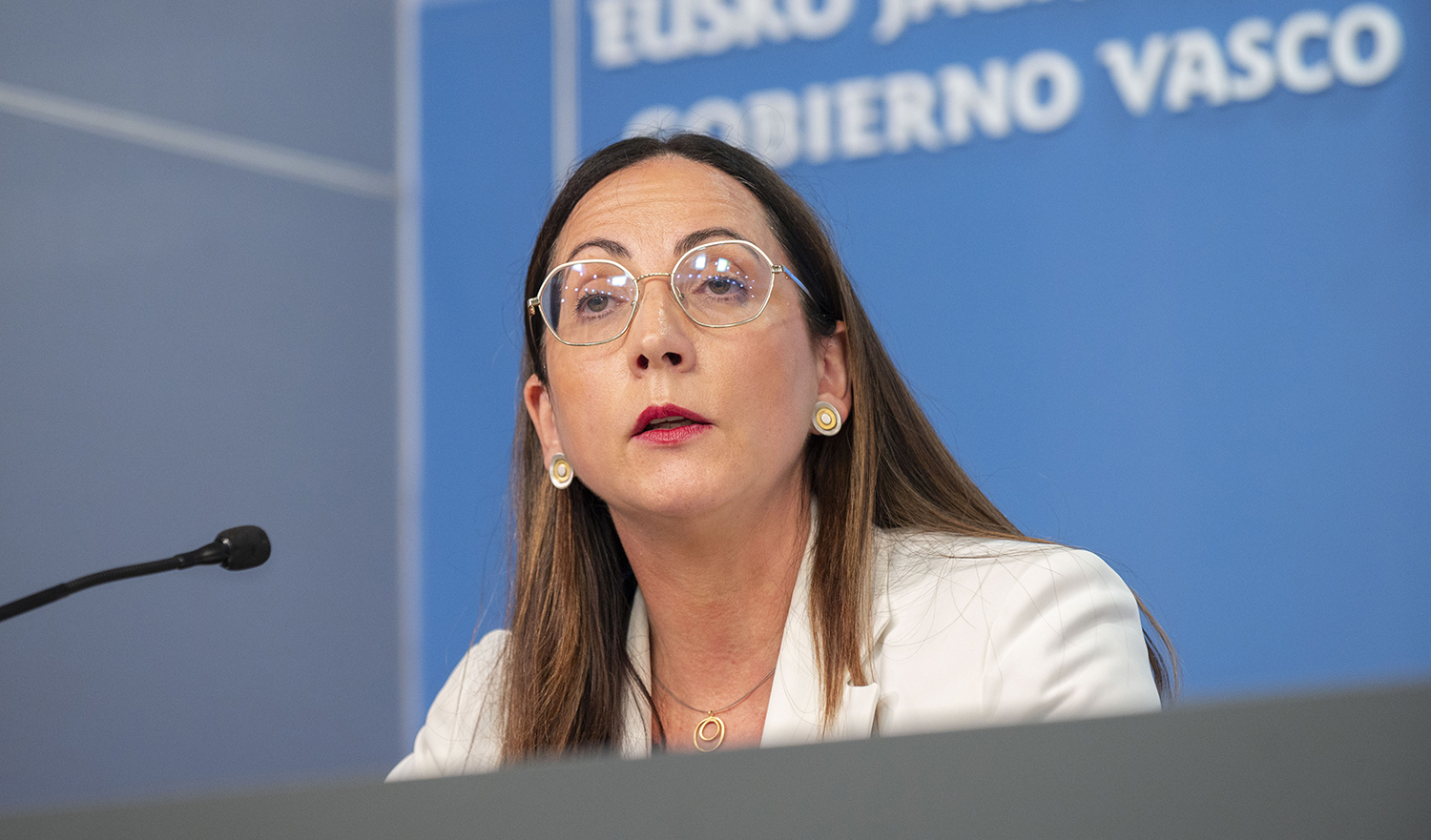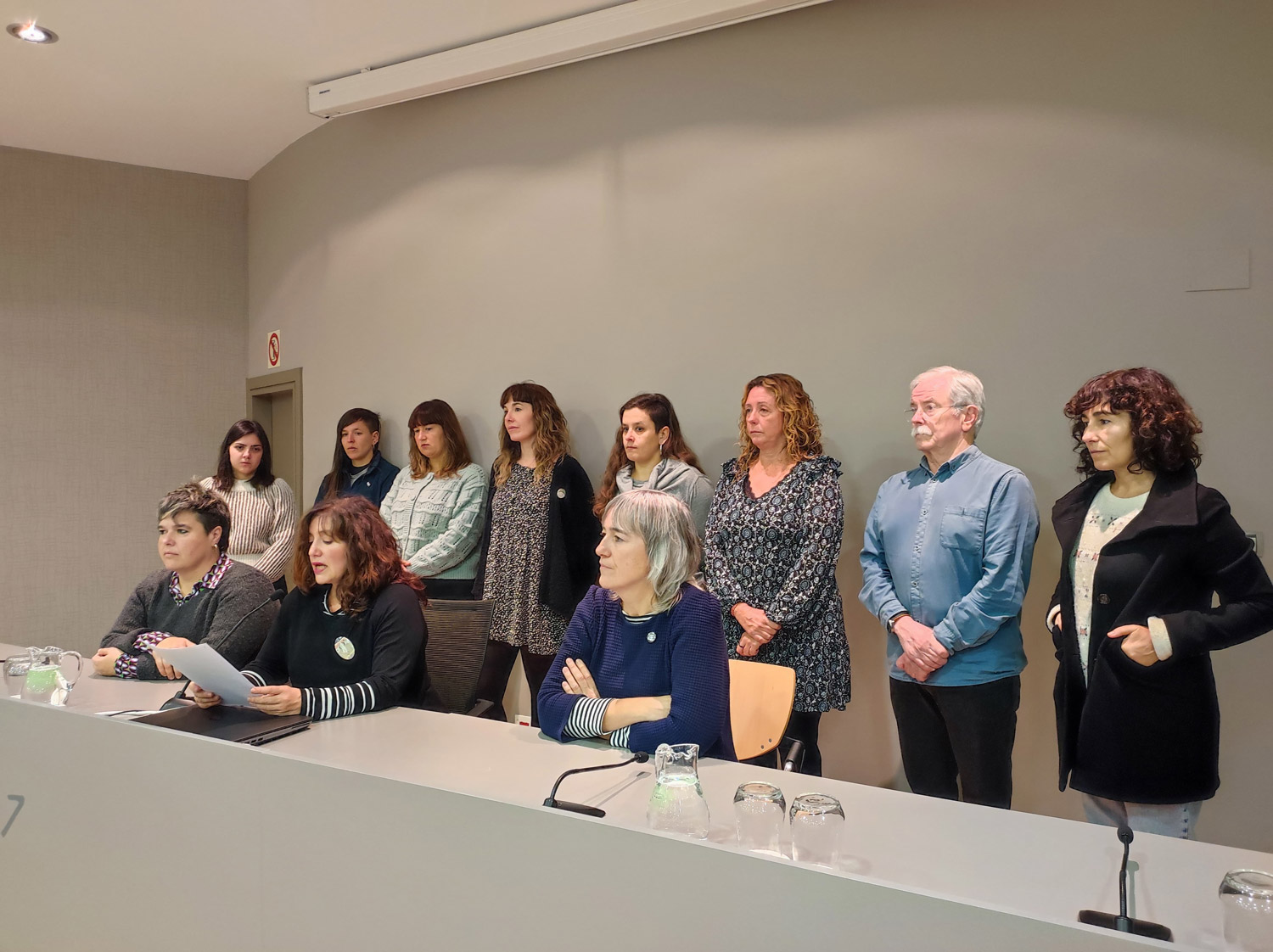Advertising and Basque Country, hotspots of the Education Act
- Students, parents, Euskera, unions… Critics and calls for mobilizations accumulate in the CAV’s draft Education Law. Two are the most controversial areas: the role of the public and concerted network in the law and the weight of Euskera in teaching.

What is the audience?
That all educational establishments, both public and concerted, enjoy the same rights and have 100% public funding in this respect, provided that they fulfil a number of commitments and obligations. This is basically the goal of the Basque Education Service that is going to create the law. For the formula to be truly effective, the Plaza de Educación platform has claimed the need to concretize the obligations of the centers that are part of this service, and the mechanisms to ensure compliance with these commitments, as they do not exist in the preliminary project.
They have gone further and say that the formula directly perpetuates the current “dual educational model”, that the law must take precedence over the public network. The unions STEILAS, LAB and ELA consider that the law has to take steps to achieve a “unique, Basque and own public network”, and that the formula for this is to establish “solid processes” for the publication of the centers for private ownership to be integrated into the public network.
The Euskal Eskola Publikoa Harro platform and the Association of Fathers and Mothers of Students of Euskal Herria (EHIGE) are of the same opinion. Through the so-called Public Service, EHIGE denounces that the inclusion of concerted centres within the framework of the law – today concerted schools operate in a concerted manner – and supposes “arming the current dual model”. On the contrary, the Ikastolas Confederation has pointed out that the linking of advertising to ownership is a mistake, that the centre that determines the possibilities of advertising and complies with the principles, values and commitments of advertising has the right to be within the law.
The conflict is not new: many agents denounce that the current dual system favors segregation among students, that the largest number of students of special needs is occupied by the public network, and to overcome it – and maintain the balance in the access of students – require the law to establish strict control mechanisms to the concerted network, which has a single registration office. In the words of EHIGE, “the preliminary draft constantly alludes to the freedom of choice of center”, and complains that this favours the privatization of education.
They call for the establishment of “solid processes” for the publication of the centres in order to achieve a “single, Basque and own public network” for private ownership centres to be integrated into the public network.
Level B2… How?
The presence of the Basque Country in the law is also a matter of concern, both by all the agents mentioned above, and by the Council of Euskalgintza, HEIZE, Hik Hasi and the Federation of Ikastolas, among others. The draft law states that at the end of the compulsory academic career students must reach the B2 level in Euskera, “but there are no means or resources to achieve the goal”, denounced the Plaza de Educación. The actual Euskaldunization of students requires a generalized and unique immersion model for all educational centers, eliminating models A and B. It is an old demand for a broad social field in which both want the law to be explicitly enshrined.
The preliminary draft states that when preparing the linguistic project of the center, the socio-linguistic context of the center must be taken into account, and the agents express their concern: that the socio-linguistic context is not the excuse to ask/teach less Euskera in areas with less Euskera, but the opposite: the school has to compensate, “give more Euskera to those with less Euskera”.
With the impulse of a multilingual model that takes into account English and Spanish, Professor Mikel Basabe has provided some data to demonstrate that the law is detrimental to the Basque: “At the entry into force of the new law, our students of model D will receive fewer hours of Basque than now.”
On this point, there is another quite widespread demand: that measures be put in place and steps be taken to ensure the transmission of Basque culture, strengthening the forms of development of the Basque curriculum.
That the sociolinguistic context of the center is not the excuse to ask/teach less Basque in areas with less Basque, but the other way around
Strikes and mobilisations
There has also been more criticism of the preliminary draft law, but the points made are certainly the ones that have led to the greatest discrepancies. This Thursday, October 27, the organization Ikasle Abertzaleak has called strikes and various demonstrations, and in the call for protest the CAV’s Education Law stands out, “deepening segregation” and outside the educational community, considering that it has been “imposed” by the four parliamentary parties. November 5, “For public education. Under the slogan “No to this Law of Education!”, Harro Topagunea has called a demonstration on the Basque Public School in Bilbao. And recently two days of strike (30 November and 14 December) have been called in public education under the slogan "Public, Euskaldun and Helburu himself". They have also announced mobilisations for those days.
Why concerted teaching?
The new Education Act adopted by the CAV against most public school officials aims to ensure that concerted education is free of charge through the financing of public authorities. The Spanish State has also announced a significant increase in public... [+]
Hunters, Marianistas, Niño Jesús, CEU San Pablo - Virgen Niña, Carmelitas, Presentation of Mary, Vera Cruz, NClic, San Viator, Escorapias, Scholapios, Bárdarias, Nazareth, Immaculate Conception, Hogar San José, Egibide. More Olabide by Eusko Ikastolen Batza. Finally, the... [+]
In response to the numerous statements of the new Education Advisor, Begoña Pedrosa, Law 17/2023 on Education will be implemented at the beginning of the course, approved in Parliament with the sole support of the PNV and the PSE. This implementation will entail the application... [+]
Who orders us ...?
The Basque Government has just been set up and the Minister for Education will be Begoña Pedrosa. Being a vice-counselor in the previous legislature and being one of the founders of the new Education Law passed last December, we are allowed to ask some... [+]
The recently passed Education Act is as bad as it is new. Throughout the processing process there has been a broad social sector against the spirit of this law, and this opposition has been greater in the face of its adoption. We want to make public the assessment and reflection... [+]
The new Education Act, which had to be born of consensus, was adopted in anger and disagreement. The lack of agreement is due to the public-private question and linguistic models. A lot of pity.
In this we follow the Spanish model, because in the CAPV we are not able to lay... [+]
Those of us who write and sign these lines are young people between 20 and 26 years old who have joined us in the context of the generational relay of Euskalgintza. In our case, we have decided to contribute to the struggle of the Basque Country in the Basque Country from... [+]

















